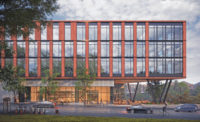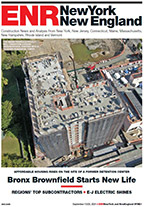"Resiliency is the doorway to sustainability," Glus contends. "Resiliency is driven by federal funding. Sustainability is about savings and efficiency."
ARCADIS is now engaged in the feasibility work for the Coney Island Creek Tidal Barrier and Wetlands Feasibility Study. The project would erect barriers to prevent future flooding. But the real job, Glus says, is what the project could do to enhance the ecology and economy of the Coney Island region.
"It is a broader vision of resiliency," Glus says. "Resiliency is just a way to get into the conversation."
The study transitions resiliency into sustainability and includes elements such as better and more accessible waterfront space, better community connectivity, enhanced water quality and improved ecological habitats.
Broadly speaking, Glus says economic conditions in the construction sector have gotten progressively better since 2009, but they still have not returned to pre-downturn levels. Part of the problem is lack of action in Washington, which has created uncertainty around issues such as water use and wetlands, he adds.
Overall, Glus expects strong organic growth with some M&A activity for ARCADIS this year. He sees a stable market in the metro area north of New York in places such as Yonkers and Westchester County because of the population density and public clients that continue to spend money.
In Nassau County, Sandy reconstruction work has driven much of the activity. And like Anderson at the Building Congress, Glus sees the New York City residential market as a bright spot.
"Globally, investors have put a lot of money to work in the New York market," he says. "There are 12 high-rise residential towers going up now. That shows the market can handle" that amount of work.






